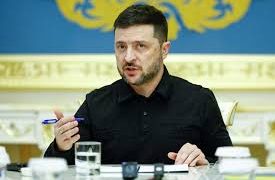AfCFTA Policy Network Director Urges Trade Minister to Revamp One District One Factory Initiative
The Executive Director of the African Continental Free Trade Area (AfCFTA) Policy Network Ghana, Louis Afful, has called on the newly appointed Minister for Trade, Agribusiness, and Industry, Elizabeth Ofosu-Adjare, to reassess and effectively implement the One District One Factory (1D1F) initiative introduced under the previous administration.
According to Mr. Afful, the 1D1F program holds significant potential as a driver of Ghana’s industrialization and the circular economy, aligning with the broader objectives of the AfCFTA.
Enhancing 1D1F Through Public-Private Partnerships
Speaking during an interview on Wake Up Africa, Mr. Afful emphasized the need for improved implementation of the 1D1F initiative, particularly through public-private partnerships (PPP).
Mr. Afful outlined a potential framework for enhancing the initiative, suggesting that the government could take on a facilitating role by granting land and other incentives to private sector players, who would then lead the establishment of factories.
He also noted that 1D1F could align seamlessly with special economic zones to create hubs for manufacturing and trade.
“I’ve always said the 1D1F is a good model for Ghana and even for free trade. The policy was good, but the implementation was not satisfactory. Government should partner with the private sector, especially by providing essential support such as land and other resources,” he remarked.
A Model for AfCFTA States
Mr. Afful advocated for the replication of the 1D1F initiative across other AfCFTA member states to foster localized industrialization, enhance value addition, and create jobs.
Such an approach, he argued, would strengthen the AfCFTA’s objectives of boosting intra-African trade and reducing reliance on imports from outside the continent.
Trade Minister’s Role in Industrialization
As the new Trade Minister assumes office, industry stakeholders, including the AfCFTA Policy Network, expect a comprehensive review of key policies like 1D1F to address existing gaps and maximize the initiative’s impact on Ghana’s industrial transformation.
By leveraging collaborative frameworks, the ministry could position Ghana as a manufacturing hub within the AfCFTA.
The success of initiatives such as 1D1F is seen as pivotal in achieving the government’s broader goal of economic diversification and sustainable development.








How do you review ( and REVIVE ) a policy that is not grounded in parliamentary Mandate… Any government can write a Policy driven by certain criteria.. Is that binding.